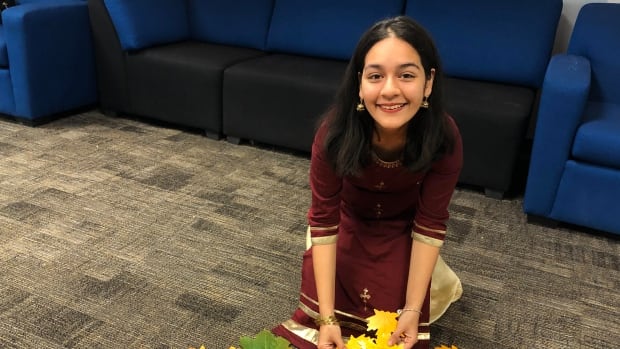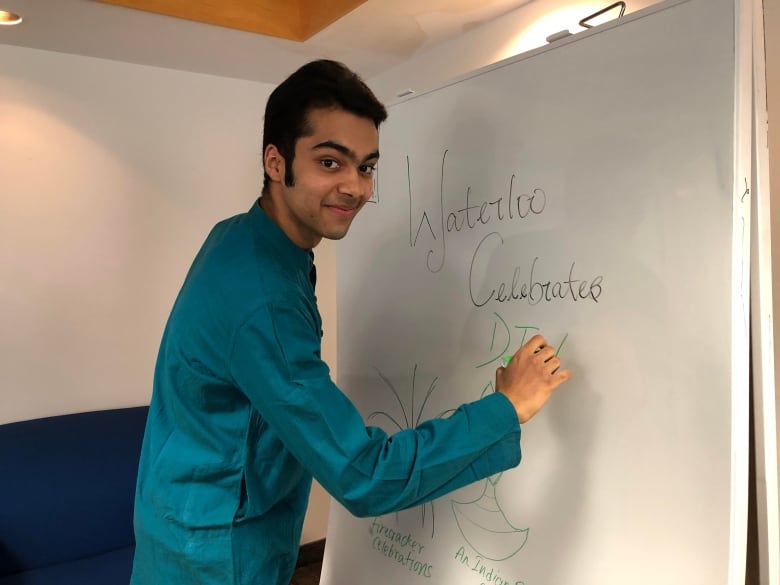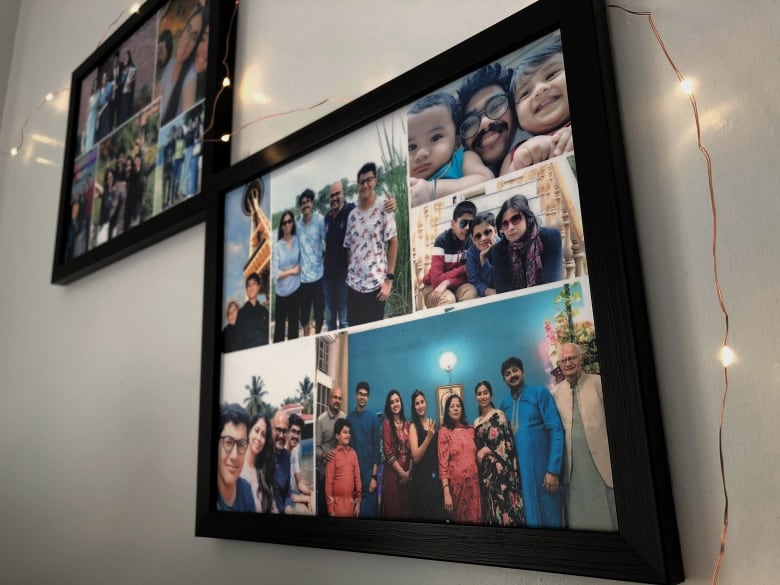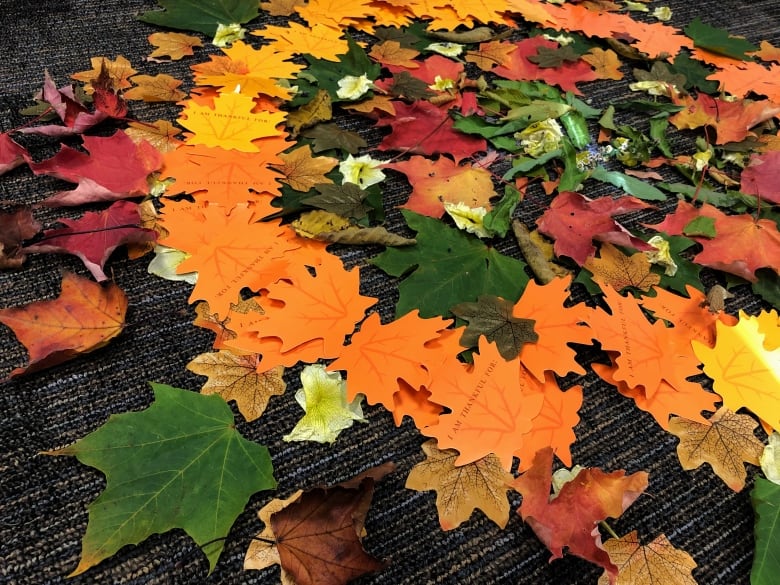
There are certain key ingredients needed to celebrate Diwali: the warm yellow glow of diyyas, the splash of colourful rangoli designs and, most importantly, the togetherness that comes from being with family.
The first two are often easily within reach for people celebrating Diwali in Waterloo Region. But that third ingredient — family — is harder to find for first-year international students spending their first Diwali away from home.
Anay Baid, a first-year student at the University of Waterloo, found a second family at student residence.
“There’s a certain sense of incompleteness because Diwali is supposed to be celebrated with family, friends and cousins back home,” he said. “Diwali helped me find a family because there are so many Indians celebrating the same festival here. For all of us to come together for such a wonderful cause, trying to have a good time in the midst of all our studies has been truly wonderful.”

He plans to continue celebrating Diwali with his new friends, he said.
“I’ll be wearing good Indian clothes and having a good time by eating good food at an Indian restaurant — I haven’t been there for a very long time!”
One of Baid’s new friends is first-year international student Ridikha Madan, who said her first Diwali away from her large family has left her feeling a bit homesick.
“Because we have this custom where in every single year for Diwali, we would visit our extended family. We would pray. We would have games,” she said. “This is the first time I’m not together with not just my nuclear family, but also my extended family so it’s a little bit of loneliness.”

She said she’s trying her best to also feel involved in the celebrations back home.
“I’m trying to video call them as much as possible to see what they’re up to, but at the same time, I’m trying not to get too much into that because then I might feel a bit sad about the fact that I’m not there,” she said. “So I’m looking at what’s going on in Waterloo and Canada in general for Diwali. Frankly, there’s a lot going on here. The culture is bustling and there are a lot of things to do.”
Aryan Vijayan, another first-year international student, put up fairy lights around his dorm room and framed pictures of his family from back home. With a big smile on his face, he fondly remembered the previous Diwali, which he spent with loved ones in India.
“We had lots of diyyas and candles and rangoli. We decorated the whole house,” he said. “I miss family. But that’s been covered here with friends. [I also miss] the vibe there for Diwali. There’s a big difference from there and here in Waterloo.”

To celebrate, Baid, Madan and Vijayan decided to create a Canadian-inspired rangoli design using maple leaves.
“It’s a very symbolic thing here in Canada,” Baid said, pointing at the colourful maple leaves they had collected.
“It’s a combination of yellow and red and green leaves. We tried to make a pattern out of it so that it looks very appealing and Indian. Because rangoli is like that!” he said.
“It’s supposed to represent diversity and unity, all at the same time.”